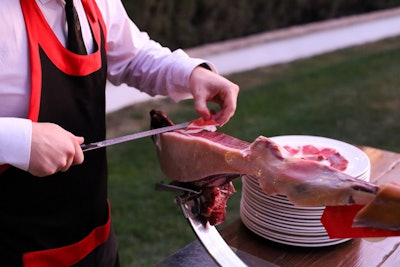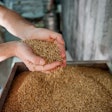
TheBlack Sea Grain Initiative, signed by Russia and Ukraine in July 2022, was designed to alleviate global food shortages by allowing exports to resume from Ukraine and follow a protected sea transit corridor to the poorest countries in the world.
A recent investigation by the Austrian outleteXXpress, however, says that didn't happen. Almost half of the Ukrainian wheat and corn exports to the EU ended up feeding pigs in Spain to produce its world-famousjamon.
According to eXXpress, only 15% of the exports ended up in the countries at risk of famine, including 167,000 tons in Ethiopia and 65,000 tons in Sudan. Spain, on the other hand, received 2.9 million tons of wheat and corn from Ukraine.
Grain deal has had a bumpy ride
Just one day after the grain deal was agreed to in July,Russian missile strikeshit the southern Ukrainian port of Odesa.
In August, theNew York Timesnoted that none of the first grain ships to leave Ukraine were headed for African countries. The first ships mainly carried animal feed and were headed to England, Ireland, Türkiye, Italy and China.
In December,Russia was accusedof deliberately holding up inspections to slow down grain shipments in an effort to discredit the Black Sea Grain Initiative. Russia alleged that grain shipments had not made it to countries that need it most.
According to a report atBig News Network, Russian officials were saying that6.4 million tonsof Ukrainian grain had been exported to the EU, of which 43% was corn and 29% wheat.
Just this week, Russia declared it would be"inappropriate" to extendthe Black Sea grain deal unless影响其农产品出口的制裁are lifted and other issues are resolved.
The agreement wasextended 120 days in Novemberand is up for renewal again in March.






















